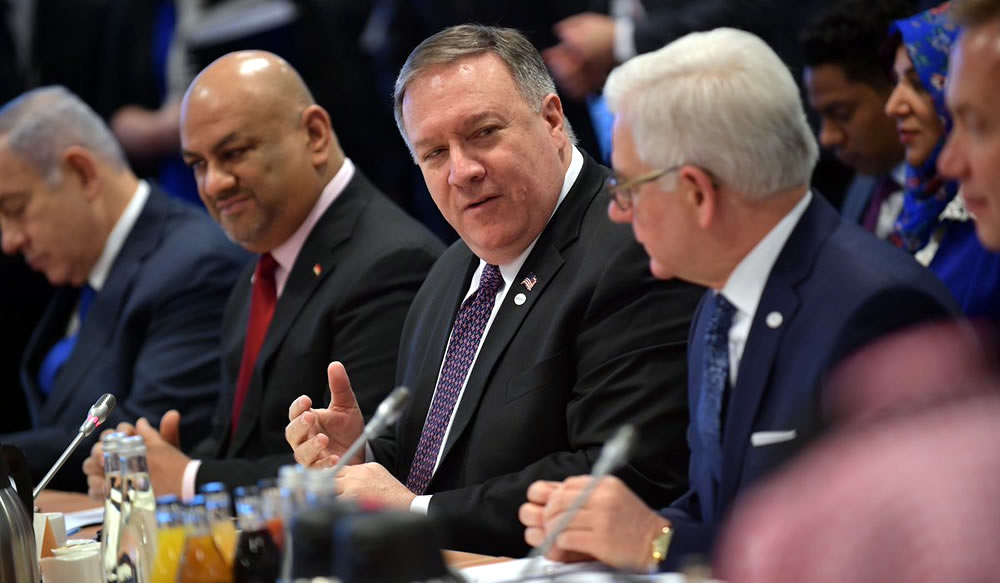Perhaps it isn’t bad that sometimes when it comes to policy, the flag of historical truth is waving after all, and along with it, the strength of sentiments.
And yet, after raising the flag, everyone should return to common sense and common interests. Instead, it didn’t work here, and so the summit of Viségrad Group that should have been held in Jerusalem from Thursday (that is, the convergence in Israel’s capital of the prime ministers of Poland, the Czech Republic, Slovakia and Hungary) was canceled following the clash between Israel and Poland about the Shoah.
When after World War II, Israeli Prime Minister David Ben-Gurion put aside personal beliefs (over blood and tears) and fostered ties with the Chancellor of the Federal Republic of Germany (West Germany) Konrad Adenauer, who was grappling with post-war German concerns, confrontation was avoided. Over time, the “reparation agreement” was reached. Germany had evident reasons not to deny its guilt vis-à-vis the Jews and was engaged in a process of elaboration linked to its own survival.
Now instead, in the midst of the best political intentions, the Polish-Israeli dominoes have fallen on each other. The latest blow was given in a surge of hyper-activism by Israel’s new interim Foreign Minister Yisrael Katz, appointed this past Sunday.
Interviewed on the same day of his appointment and in the middle of a full-fledge electoral campaign, he also quoted former Israeli Prime Minister Yitzhak Shamir, saying, “Shamir said that every Pole suckled anti-Semitism with his mother’s milk.”
(U.S. Ambassador to Poland Georgette Mosbacher then called on Israel to apologize for Katz’s comments.)
Of course, that only strengthened the stance taken by Israeli Prime Minister Benjamin Netanyahu during his recent visit in Warsaw for the summit on the Middle East. Netanyahu stated at its Jewish History Museum that “there were many Poles who collaborated with the Nazis, there is no doubt about this.” Then he corrected his position—only certain Poles, some Poles. In fact, “Poles,” not “the Poles.” But the statement came after the long tension caused by the controversial Polish Holocaust Law that makes it a criminal offense, including imprisonment, to accuse the Polish people of complicity in the crimes of the Holocaust, and then, after many confrontations with Israel, the law became a civil rather than a criminal offense.
This while the policy of the four European countries in question has raised to a fundamental importance in terms of the controversy they have waged against the European Union’s style under Federica Mogherini, which repeatedly criminalizes Israel while continuing to support not only the nuclear deal, but also trade with Iran.
It’s by no means a coincidence that at the Warsaw conference, sitting next to U.S. Secretary of State Mike Pompeo was Yemen’s Foreign Minister Khaled Alyemany. And next to him—lo and behold, for the first time in history—was Netanyahu during talks on the Middle East in which Europe was represented solely by Italy and the United Kingdom, sharing points of view on Iran with 60 nations, many of them Arab.
Bahrain’s Foreign Minister Khalid bin Ahmed Al Khalifa said that without the “toxic money” that Palestinians receive from Iran and other suspicious patrons, the conflict with Israel would have long since been resolved; the Foreign Minister of the United Arab Emirates Sheikh Abdullah bin Zayed Al Nahyan even declared that Israel has the right to self-defense, and the Oman’s Foreign Minister Yusuf bin Alawi bin Abdullah was enthusiastic to see Netanyahu again. All this occurred in Warsaw, of all places, which the Palestinians asked the Arabs to desert while the Iranians and Turks met with the Russians in Sochi.
The world forms new islands and continents on two sides of a dangerous gulf. Poland and Israel are on the same side, and yet history now (temporarily) drives them astray. They will have to land on the same place soon.
Journalist Fiamma Nirenstein was a member of the Italian Parliament (2008-13), where she served as vice president of the Committee on Foreign Affairs in the Chamber of Deputies, served in the Council of Europe in Strasbourg, and established and chaired the Committee for the Inquiry Into Anti-Semitism. A founding member of the international Friends of Israel Initiative, she has written 13 books, including “Israel Is Us” (2009). Currently, she is a fellow at the Jerusalem Center for Public Affairs.
Translation by Amy Rosenthal.


























